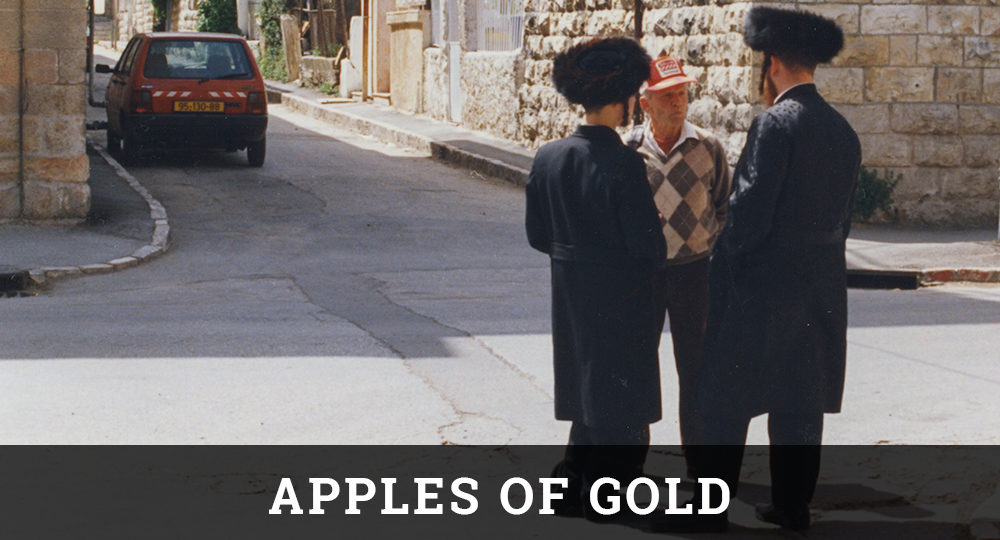Joel of Jerusalem Jun/Jul 1988
In 1 Thessalonians 5:13 the Lord admonishes us to be at peace among ourselves. However, some people who appear to be nice and peace loving are only trying to impress others with their lofty character. A recent experience brought this to my mind.
An old friend, whom I had not seen in many years, came to my home to ask a favor of me. He asked, “Do you have time to do something for me?” I replied, “If I can do something to help you, I will surely find the time.” This pleased him very much, and he continued with his request. “You have no doubt heard that one of my relatives has died, and I would like you to take part in the funeral.” Of course I agreed to do so.
When we arrived at the funeral home, we discovered there were only six of us, not enough for a minyan, which requires ten for any service. Apparently, few people cared to spend their time attending the funeral of a very poor and humble man. This led to a discussion about death and the grave among several of us as we returned home.
One of the men, who considers himself very wise, began to question me. “Joel, have you purchased a grave for you and your wife?” “Why do you ask me this?” I replied. “Because,” he said, “it is very important to have a place ready for you when you die.” I responded that what we do while we are living is more important. “You must read the Bible to discover what God wants of us. Amos 4:12 does not tell us to prepare a grave but ‘prepare to meet thy God, O Israel.’ Much is written in the Bible about eternal life. John 6:47 says, ‘He that believeth on me hath everlasting life.’ Also, Psalm 23:6 speaks of dwelling forever in the Lord’s house, not the grave. If God offers us so great a gift, why should we not receive it gladly?”
“Well,” my companion replied, “you obviously have spent much time considering this subject of the grave.” “Yes, and all believers in the Lord Jesus Christ think of the future of our souls – everlasting life in Heaven, not in the grave. So, now I ask you, what is your response to what I have shared with you ?” As he turned away from me he said, “Wait a moment, and I will give you the answer.”
Shortly he returned with a worker from the burial society (Hebra-Kaddisha). He felt that this man would have a ready answer since he dealt with these matters routinely. This new arrival proclaimed vigorously that I was saying stupid things. “Do you call the Bible prophets stupid?” I asked. “Aha,” he said, “so let’s see just how much knowledge you have about the Bible.” I quoted many passages to him including Psalm 139:24 which speaks of the way everlasting and Isaiah 55:3 which says, “Incline your ear, and come unto me; hear, and your soul shall live.” Then I asked him, “Do you think these things that are written in the Bible are stupid?” He hesitated a bit and then said, “I can’t answer you, but I’m sure the rabbi will know what to say.”
The rabbi, who had joined our group, was interested to hear of our former conversation, and I was happy to have contact with him. I asked him, “Is it more important to think about the grave or about everlasting life for our souls which we can have by believing on the Lord God, our Savior?” The rabbi was displeased with my question. “Who are you to ask me such questions, and why are you so sure that your soul will find a place in Heaven ?” I replied, “I’m sure because I believe in the Lord, and His Spirit is upon me.” The rabbi responded, “You speak like those Christians.” I answered, “I speak about my own personal faith in the Lord.”
We continued then to talk in a very open manner, and he questioned me about many things concerning my faith. I was very pleased when I heard his concluding statement, “It is good that the Bible is your guide to finding the truth.” Please pray with me that he and the other men who were with us that day will find the truth about being at peace with God and man by diligently searching the Scriptures.
